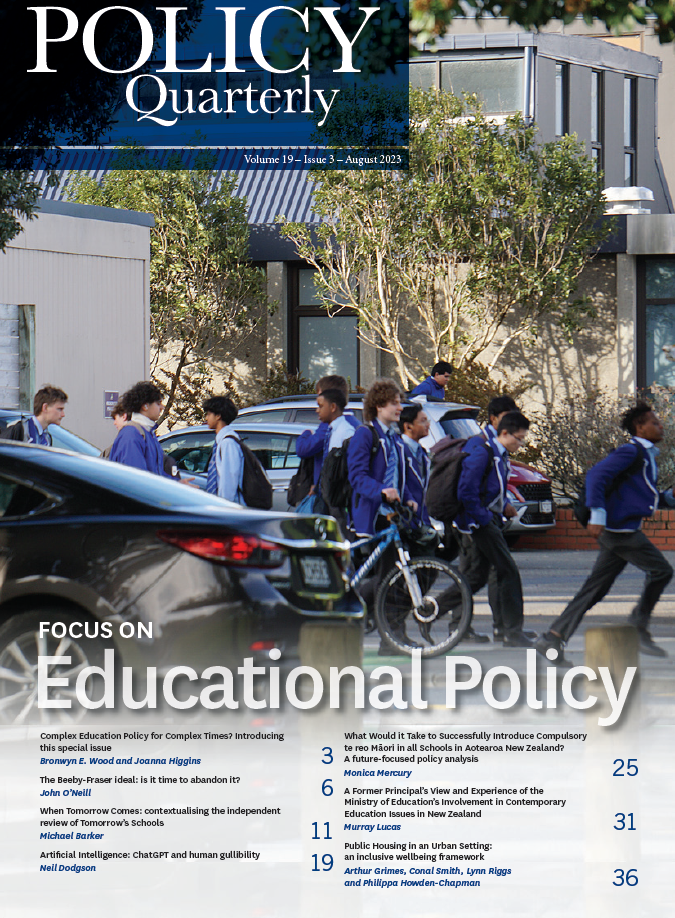Complex Education Policy for Complex Times?
Introducing this special issue
DOI:
https://doi.org/10.26686/pq.v19i3.8304Abstract
Any glance at education in New Zealand right now reveals a multitude of issues. In the schooling sector the declining rates of literacy and numeracy have been in the news, following a 2020 UNICEF report which found that only 64.6% of Aotearoa New Zealand 15-year-olds had basic proficiency in reading and maths (Hood and Hughson, 2022). Covid-19 has had a negative impact on students’ wellbeing and also contributed to significant declines in learning, especially for lower decile schools and children in Auckland (Education Review Office, 2021). While students’ wellbeing has improved somewhat in 2023, the loss of learning is still significant, with more than half of principals reporting concerns with writing, and growing behavioural issues and inequalities in student achievement (Education Review Office, 2023).
Downloads
Downloads
Published
Issue
Section
License
Permission: In the interest of promoting debate and wider dissemination, the IGPS encourages use of all or part of the articles appearing in PQ, where there is no element of commercial gain. Appropriate acknowledgement of both author and source should be made in all cases. Please direct requests for permission to reprint articles from this publication to Policy-Quarterly@vuw.ac.nz.



